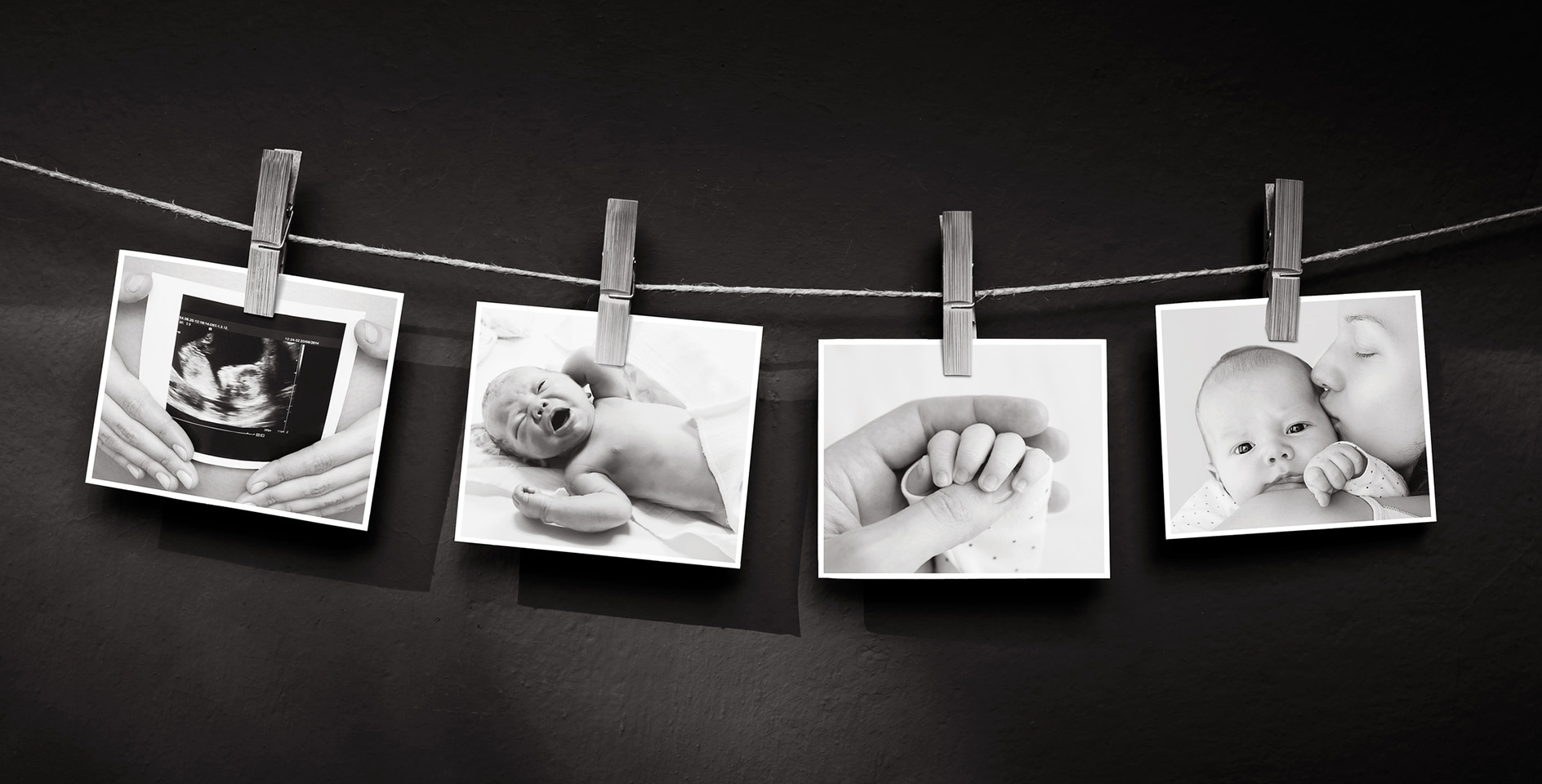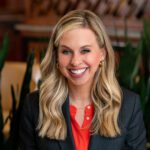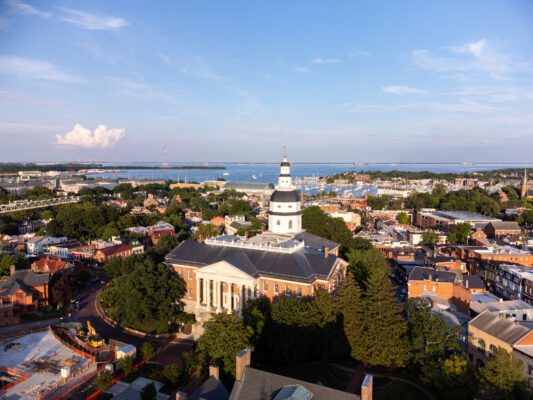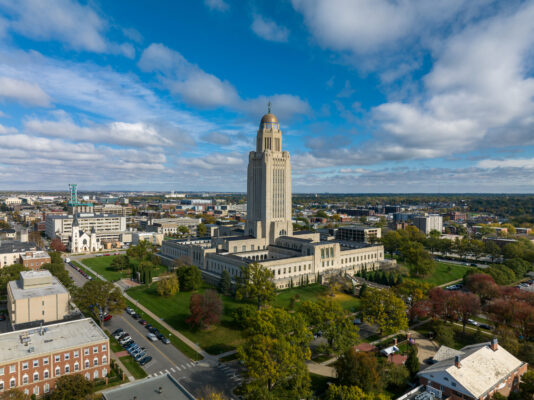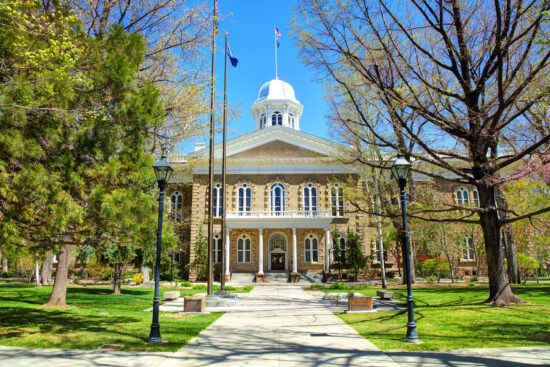A year ago this week, the U.S. Supreme Court overturned Roe v. Wade and drastically altered access to abortion in our nation. Millions of pro-life activists had worked and prayed for this moment. Yet, the nature of the ruling in Dobbs v. Jackson’s Women’s Health Organization didn’t outlaw abortion; it sent the decision-making back to the states, setting off a chain of events, some positive and life-saving, some predatory and destructive.
In my life, I have had the opportunity to live in a few different cities, in different states, each with their own culture. I was able to build relationships with pregnancy care providers in these places, visit their clinics, and support their sacrificial, God-honoring work. Every person I know that has worked in a pregnancy care center is a devoted Christian, a deep well of empathy, and a dynamic problem solver who has walked with many people through unimaginable circumstances.
As we recognize the anniversary of the monumental Dobbs case, we talked to two heroes who have provided a view of pro-life ministry in Tennessee and Illinois. It’s staggering to consider how different their experience has become.
- Andrew Wood is the executive director of Hope Resource Center in Knoxville, Tennessee. He hosts a weekly podcast, “A Conversation on Life,” and often speaks and writes on the issue of life around the country. The Hope Resource Center is a cost-free healthcare center for women offering medical care by licensed professionals for reproductive health concerns, education, and connection with community resources.
- Kathy Lesnoff worked as a medical assistant in an abortion clinic and is now the president/CEO of Mosaic Health. She currently oversees a staff of 12 with offices in Granite City and Fairview Heights, Illinois, just outside the city of St. Louis, Missouri. They also oversee a mobile medical unit parked next door to Planned Parenthood in Fairview Heights.
This article will provide a portrait of today’s varied abortion landscape, as well as inspire churches and individuals in every community to consider how they might join in supporting mothers and families in new ways.
Jill Waggoner: How did the Dobbs decision affect access to abortion in your area?
Andrew Wood: My home state of Tennessee passed the “Human Life Protection Act” in 2019 and a “Heartbeat Bill” in 2020. The Dobbs decision on June 24, 2022, allowed for these bills to immediately make a difference across Tennessee. The reality on the ground here in Knoxville and across the state, however, was felt as the abortion providers quickly closed their doors or altered drastically the services they provided after the Dobbs decision.
Kathy Lesnoff: Illinois has long been considered a “sanctuary state” for abortion. However, the Dobbs decision took this idea to a whole new level. As many states across the nation proceeded to pass laws that made abortion illegal or severely limited, Illinois opened three more abortion facilities along border cities. Additionally, Planned Parenthood launched a mobile medical unit for the sole purpose of providing abortions along state lines, thereby providing even more access to abortion in Illinois.
JW: How have abortion pills by mail or abortion tourism affected the families you serve?
AW: We are well aware that women in Tennessee are seeking abortion pills via the mail and are even traveling across state lines into bordering states to access abortion providers that are unavailable in Tennessee. This awareness has prompted partnerships and cooperation with other pregnancy centers in bordering states so that we can assist and provide care for men and women that may be making that drive in one direction or another. We believe that these partnerships will only foster better environments to serve our patients.
KL: Over 54% of abortions are now medical. Women are opting for the pill as they feel it is an easier option with less guilt attached. To meet this increased demand, more pregnancy centers, including Mosaic Health, are offering abortion pill reversal.
Mosaic has seen multiple patients from other states whose travel has been covered by their employer. We have witnessed an increase in abortion tourism as license plates from over 30 states were seen at a local abortion facility just last year alone.
JW: How has the abortion culture of your state changed since Dobbs?
AW: Laws can certainly make a difference, but you don’t change the culture overnight with a piece of legislation. Abortion was the law of the land for five decades in this country and, although a giant shift was made via Dobbs, there is still much work to do in cultivating a ethic with a high value of life.
In Tennessee, we have been successful in legislating a decline in abortion, and the state should be applauded for that, but we haven’t stopped there. We have also started the process of eliminating obstacles to parenting, fostering environments to allow for families to flourish, and are looking at ways to see public and private partnerships work together to better serve families in need. These partnerships and this work is designed to prevent unplanned pregnancies from ever becoming crisis pregnancies.
KL: Mosaic Health’s Mobile Medical Unit (MMU) is parked by Planned Parenthood six days a week. Since the Dobbs reversal, we have seen a 72% increase in women seeking an abortion on the MMU. The Dobbs decision incited even more anger from the pro-choice left, and they have been motivated to stop pro-life efforts at all costs. Senate Bill 1909 is evidence of their determination to stop pregnancy centers from providing free, confidential services across the state of Illinois.
JW: How have your client numbers been in the last year?
AW: We have certainly seen an increase of patients since June 24, 2022. This increase was not unexpected as we knew the abortion landscape would shift if and when Roe was overturned. Year after year we saw a 17% increase in pregnancy test appointments, and we provided more ultrasounds in 2022 than we had the previous six years. Unplanned pregnancy doesn’t take a holiday because of court decisions, new legislation, or pandemics. We have served for 26 years in Knoxville and have witnessed this firsthand year in and year out.
KL: Since the Dobbs case leak, we have seen a 64% increase across all three of our locations in women considering abortion compared to the previous year.
JW: What are you hearing from the women that come to your center? What is new, and what is the same?
AW: Our patients are looking for assistance. Some of them are not even aware a court decision was made or a law passed in Tennessee. Others are very aware of the options in front of them, the timelines they must adhere to if they are seeking to travel out of state, and what each state offers in terms of abortion services.
We are also seeing some women feel a sense of freedom now that abortion is not an option in Tennessee. In the past, they have felt a burden or as if abortion was being thrust upon them due to their circumstances. They feel very different now that abortion has been removed, at least in Tennessee, from their decision-making process.
Unfortunately, we are also hearing from patients that are getting little to no follow-up care after traveling out of state for an abortion. This lack of care is frustrating as women are forced to walk through these difficult days and decisions alone and with no oversight from the very ones that provided them with the abortion in the first place.
KL: What is new is the urgency with which many want to have an abortion and as mentioned previously, the interest in the abortion pill. Many more women know there are gestational time limitations for the abortion pill. Also new is the amount of gender-confused patients we are serving.
What remains the same is that women are convinced abortion is the best option for their future. They are emboldened to choose abortion and empowered by the self-centeredness of the current culture.
JW: What do you see as the greatest need from churches and other pro-life partners in the coming days?
AW: I have often answered this question with material needs. This need will never go away. However, I think our greatest need today is discipleship. We need a smooth onramp for our patients to get connected to the local church. We need our patients to be discipled by godly women. We need our patients’ significant others to be discipled by godly men.
We hold to a high value of life in our pregnancy centers because God created life. In the same way, we hold a high value of marriage and parenthood. Our culture is good at detaching these good and godly things from each other. We shouldn’t be surprised when the next generation lives out this detached life as they are attending more baby showers than wedding showers. The answers our patients are seeking aren’t going to be found in the culture of detachment. Instead, the answer is found in Scripture, which is taught, discussed, and lived out in the local church.
It is my prayer that pregnancy centers across this country would have church partners lined up seeking to assist, certainly, in material needs, but more importantly in the discipleship of men, women, and babies who are making their way to thousands of pregnancy centers every single day.
Imagine that in 10 years this onramp from the pregnancy center to the local church is flourishing with families that value God, life, marriage, and parenthood. I believe this partnership is the key to the trajectory shift we so desperately need in today’s society. We must not divorce the life issue from the Great Commandment (Love God and love your neighbor) and the Great Commission (go and make disciples.) Once we understand this, we will be well positioned to serve, love, and disciple those in need.
KL: The greatest need from churches is a boldness to proclaim the truth regarding the life issue from the pulpit. We are seeing an increased number of women claiming to be Christians choosing abortion. We need godly leadership and voices who are unafraid to share the value of life from conception to natural death with their congregations.
We also need prayer:
- prayer that the hearts and minds of those coming through our doors will change,
- prayer for our staff and volunteers who are engaging in a battle of life and death every day,
- and prayer for the culture of death in our state to transform into a culture of life.
We believe that God hears and answers prayer.
And we need financial partnership. It would be impossible to operate a single ultrasound machine, pay nursing staff, and offer free pregnancy tests without the financial support of generous churches and individuals throughout our community. For Mosaic Health, the past 37 years has been a testament to how unified, life-affirming advocates can transform people and save lives for generations of families to come.



